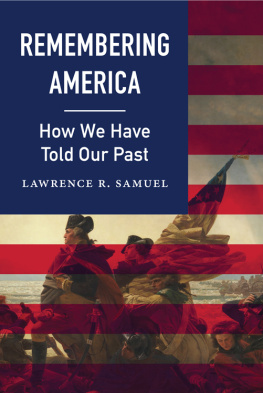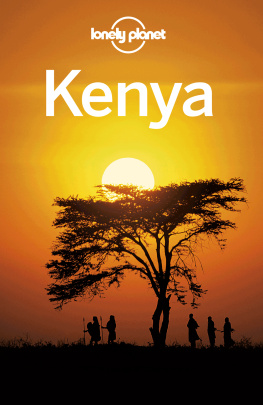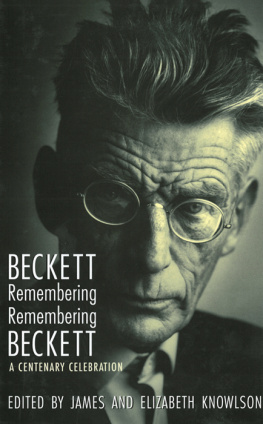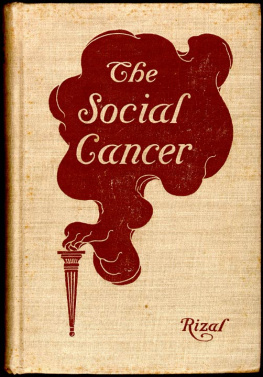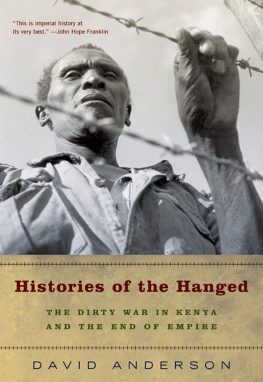
Remembering Turkana
This book explores aspects of the socio-economic and political history of the Turkana of northern Kenya, examining the making and remaking of the regional economy via the trajectories of socio-material interaction that have structured key practices, relationships and livelihoods over the past century.
Traversing Turkanas constituent livelihoods and examining the historical relationships between them in relation to shifting economic, ecological and political factors, the book asks what perspective emerges from an in-depth understanding of the everyday things that have taken part in processes of substantial socio-cultural transformation. By setting out a series of new examples established through long-term research in the region, it offers a characterisation of Turkanas iterative transformation as the articulation of a set of long-term continuities. Investigating quotidian personal and community histories, it argues that Turkanas complex network of livelihood interactions has, on the whole, strengthened over time through its continual reformulation, as identities, livelihood practices and social institutions have been reimagined and reshaped with each new generation in order to reconstruct accumulated memory and knowledges.
Remembering Turkana provides a wide-ranging socio-historical overview of the Turkana region and people, situating critical contemporary issues within diverse bodies of literature. The characterisation of long-term change and continuity, as articulated and enacted via material culture production, use and exchange, that it offers will be of significance to a broad array of scholarly disciplines, including archaeology, history, anthropology and political science.
Samuel F. Derbyshire is a Junior Research Fellow in Anthropology at St Johns College, University of Oxford.
Routledge Studies in African Archaeology and Cultural Heritage
Titles include
Remembering Turkana
Material Histories and Contemporary Livelihoods in North-Western Kenya
Samuel F. Derbyshire
Great Zimbabwe
Reclaiming a Confiscated Past
Shadreck Chirikure
Remembering Turkana
Material Histories and Contemporary Livelihoods in North-Western Kenya
Samuel F. Derbyshire
First published 2021
by Routledge
2 Park Square, Milton Park, Abingdon, Oxon OX14 4RN
and by Routledge
52 Vanderbilt Avenue, New York, NY 10017
Routledge is an imprint of the Taylor & Francis Group, an informa business
2021 Samuel F. Derbyshire
The right of Samuel F. Derbyshire to be identified as author of this work has been asserted by him in accordance with sections 77 and 78 of the Copyright, Designs and Patents Act 1988.
All rights reserved. No part of this book may be reprinted or reproduced or utilised in any form or by any electronic, mechanical, or other means, now known or hereafter invented, including photocopying and recording, or in any information storage or retrieval system, without permission in writing from the publishers.
Trademark notice: Product or corporate names may be trademarks or registered trademarks, and are used only for identification and explanation without intent to infringe.
British Library Cataloguing-in-Publication Data
A catalogue record for this book is available from the British Library
Library of Congress Cataloging-in-Publication Data
A catalog record for this book has been requested
ISBN: 978-0-367-43109-9 (hbk)
ISBN: 978-1-003-00126-3 (ebk)
Typeset in Times New Roman
by Apex CoVantage, LLC
Dedicated to Lomoru Ima, for his generosity and his vision.
Contents
PART I
Situating Turkana
PART II
Akichem (Fishing)
PART III
Akitare (Cultivation)
PART IV
Akiyok ka Aremor (Herding and Raiding)
PART V
Tracing change and facing the future
Guide
In June 2014, when I began my fieldwork in northern Kenya, the air was rife with anticipation and expectation. I arrived amidst the buzz of uncertainty and conjecture that trailed off from the recent announcement that major oil reserves had been discovered in the Lokichar Basin, southern Turkana Kenyas first significant oil discovery (see Agade 2014; Johannes et al. 2015). The homeland of one of East Africas most marginalised populations one of Kenyas poorest and most underdeveloped regions was now poised to become a momentous new East African oil-producing province and a critical economic pillar within Kenyas unfolding future. My research in the southern reaches of Turkana County was to be framed by the ongoing exploration activities of those engaged in the nascent petroleum sector. Travelling around between various different research locations, I met regularly with roadblocks obstructing oil rigs and workers camps and sizeable protests in various towns and centres. The feeling was one of agitation against detachment and inaccessibility. The groundwork was being put in place for a process of infrastructural and economic growth that would, it was imagined, bring unexpected opportunity. There was an urgency in thought and action stoked into animosity by an impenetrable fog of misinformation and distrust.
Such a state of affairs would have been enough, in its own right, to radically shape ones research agenda and outlook. However, the prospect of oil wealth was far from the only current blowing in the winds of change across the region. For alongside the oil discovery, Lake Turkana, Kenyas largest lake and a crucial resource within numerous mixed pastoral economies (including that of the Turkana), had recently come under significant threat from the newly constructed Gibe III hydroelectric dam and associated sugarcane plantations on southern Ethiopias Omo River. The Omo River alone provides roughly 90% of Lake Turkanas inflow and, whilst predictions regarding the long-term impacts of Gibe III vary, it seems likely that in the ensuing years the lake will undergo a significant reduction in its water levels and a rapid deterioration of its fisheries and general biodiversity (Avery 2012; Velpuri and Senay 2012; Carr 2017; Hodbod et al. 2019). Alarmingly, the construction of two further dams along the southern Omo Gibe IV and V is currently underway.
For Turkana, large-scale socio-economic and environmental transformation is thus irrevocably on the agenda, even if the manner in which it will be enacted and mediated over the long term by the numerous policy makers and organisations involved remains undefined. As if by fate, Turkanas oil discovery came two years after Kenyas adoption of a new constitution (in April 2010), setting in place the devolution of power from national to local governments (following this, Turkana District was rebranded Turkana County). This political shift brought with it the promise of local participation, community action and regional leadership during a time when such prospects could not have been more vital and significant. Since 2014, my fieldwork has developed into a long-term project encompassing a variety of locations and interdisciplinary approaches to the recent past, drawing together features from anthropology, archaeology and history into situated ethnographic research. I have spent a significant portion of the last six years in Turkana, throughout which time it has been impossible not to absorb the ambience that emanates from ongoing and expected radical overhaul. However, my research has also been equally guided by an appreciation of broader contextual factors shaping the way these anticipated transformations are imagined outside of the region.


